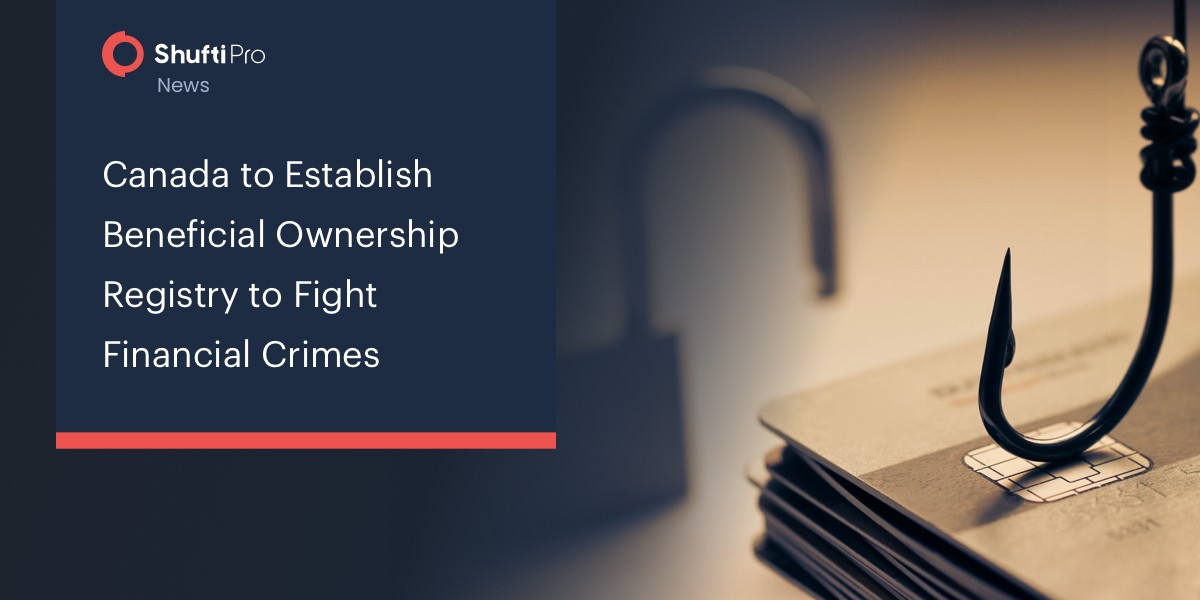Canada to Establish Beneficial Ownership Registry to Fight Financial Crimes

The Candian Federal budget has brought good news for the supporters of anti-money laundering. The Federal Finance Minister has announced a budget of $2.1 million allocated to the Innovation, Science and Economic Development Canada (ISED) to develop a corporate beneficial ownership registry that can be accessed by the public by the end of 2025.
A beneficial owner is a person who controls a company, trust, or partnership. The transparency in the beneficial ownership of the company will allow the them to avoid kleptocrats, criminals, and tax dodgers from hiding and laundering their illicit funds in the complex corporate system or shell companies.
As Canada lacked transparency in the beneficial ownership requirements, international law firms used to refer Canada to their clients as the most suitable place for money laundering through shell companies.
The public registry announcement with the Budget 2021 is a major initiative by Canada in changing its reputation as an easy place for criminals to hide their dirty money. Canada plans to go even further than the USA, which passed its Corporate Transparency Act earlier this year to develop a beneficial ownership registry. Canada plans to use this opportunity to develop the world’s most effective beneficial ownership registry. This will assist the country in deterring illicit funds from entering its economy and having a negative impact on businesses.
Canada first needs to make sure that the beneficial ownership registry is accessible by the public and it is easily searchable. Non-Canadian citizens must also be able to access the registry. Canadian law considers beneficial owners to have 25% direct or indirect ownership of the company but they need to lower the threshold to 10% to ensure the integrity of the system. Canada also needs a data verification system of the beneficial ownership data. This process is required to ensure legitimacy in the registry. Many organisations are working towards the field of digital IDs and can help the Council of Canada with digital identification and authentication.
The registry also needs to come up with penalties for those who try to falsify the information and manipulate the system. The penalties should include jail time for serious offenders. An anonymous tip line should also be set up so that the public can assist the authorities in finding the suspicious owners. Staff should be set up as well to further investigate the suspicious tips.

 Explore Now
Explore Now













